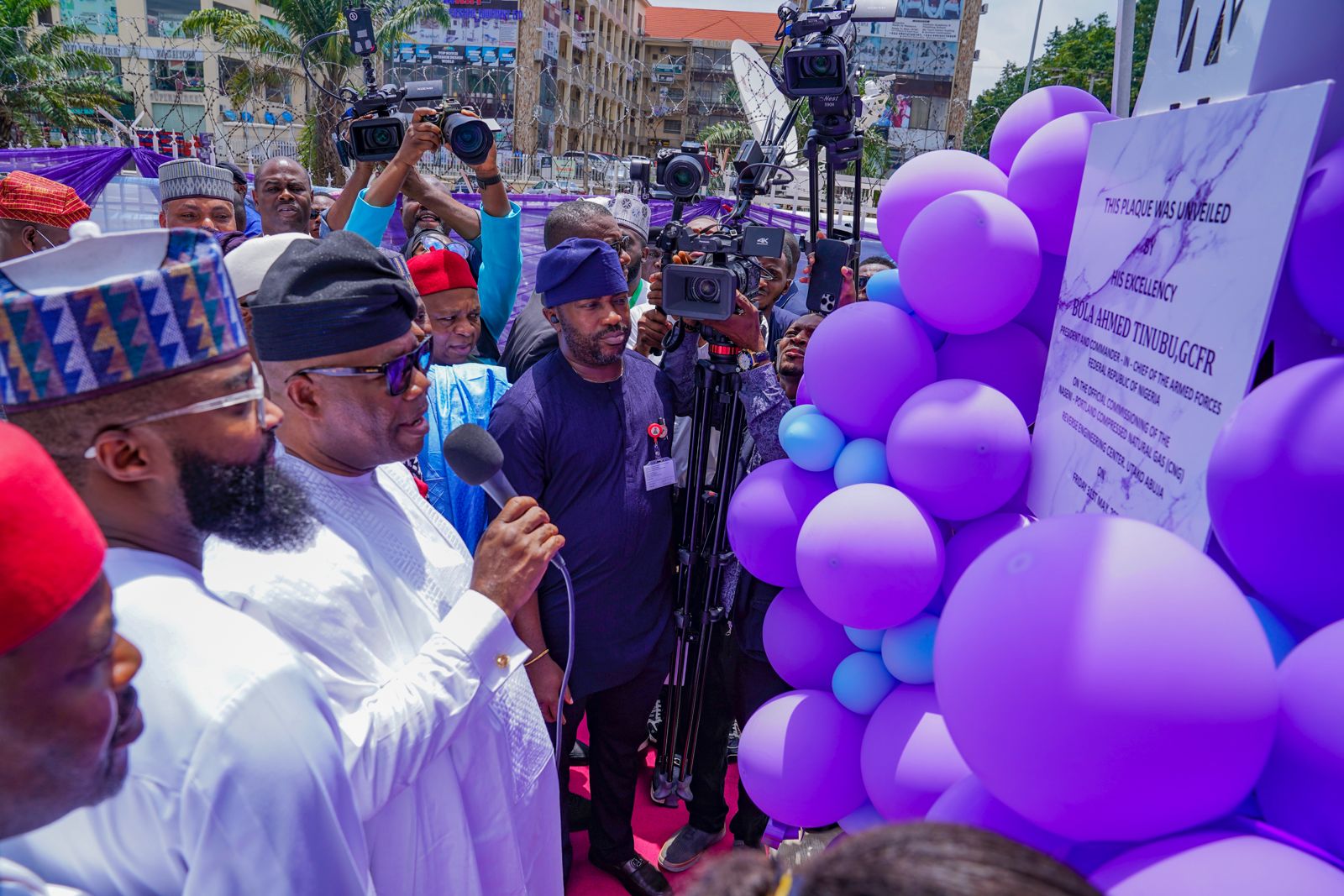By Olaide Ajibola, JKNMedia Reporter
ON FRIDAY, President Bola Tinubu officially inaugurated the NASENI Compressed Natural Gas (CNG) Reverse Engineering Training, Filling, and Conversion Centre in Abuja, marking a significant milestone in Nigeria’s energy and industrial sectors.
Represented by Senate President Godswill Akpabio, Tinubu highlighted the pivotal role of the National Agency for Science and Engineering Infrastructure (NASENI) in driving the country’s energy transition.
Established in 1992, NASENI focuses on advancing manufacturing capabilities and technological development within Nigeria.
Addressing the audience, Tinubu emphasized the importance of the Presidential Initiative on Compressed Natural Gas (PiCNG), a key programme aimed at facilitating the private sector’s development of essential gas infrastructure.
This initiative, he said, is part of the broader strategy to harness Nigeria’s vast gas resources as a transitional fuel, aligning with the nation’s Energy Transition Plan (ETP).
“Our administration’s PiCNG is a flagship programme supporting the rollout of critical gas infrastructure to spur innovation and industrialization in Nigeria. It significantly contributes to our vision of utilizing our immense gas resources as a transition fuel on the journey to net-zero emissions,” Tinubu remarked.
Tinubu also acknowledged NASENI’s efforts to advance electric vehicle technology, particularly the development of lithium batteries in collaboration with international partners.
He said he envisioned Nigeria as a central hub for the global electric vehicle revolution, leveraging the country’s substantial lithium deposits.
“We aim to make Nigeria an African hub of the global Electric Vehicle revolution. Nigeria is blessed with abundant lithium deposits, a key mineral for EV battery development,” he said. “The commissioning of this CNG center today is a testament to the success of our efforts and NASENI’s role in this transformation.”
NASENI’s Executive Vice Chairman and CEO, Khali Halilu, shared insights into the center’s capabilities, saying “Developed in partnership with Portland and Kia, the facility can convert 15 cars every two hours, amounting to 2,700 conversions per month.”
Halilu outlined a vision where similar facilities across Nigeria could enable the conversion of all vehicles in the country to CNG within a year.
“By our calculations, ten such facilities in each of the 36 states and the FCT could convert every vehicle in Nigeria to CNG within a year. Our approach minimizes capital flight, conserves foreign exchange, grows the local production economy, and creates sustainable jobs and skills for Nigerians,” Halilu explained.
Halilu also reiterated NASENI’s commitment to leveraging locally sourced components and underscored the agency’s broader strategic initiatives aligned with President Tinubu’s Renewed Hope Agenda, assuring that NASENI is poised to meet the growing demand for CNG-powered vehicles and generators in Nigeria.
“Welcome to the new NASENI,” Halilu concluded. “With this new center, we are well-positioned to cater to the demand for CNG-powered vehicles and generators in Nigeria as this event underscored our agency’s crucial role in the nation’s industrial and energy landscape, reflecting a robust public-private partnership aimed at sustainable development and technological advancement.”





